Stanford GSB Has Updated Its Financial Aid Policy

Six weeks into a process to revamp financial aid protocol at Stanford Graduate School of Business (GSB), the school has shared the most recent updates in an ongoing review and re-imagining of how financial aid is awarded.
The decision to reassess the process, which Clear Admit covered two weeks ago, came not long after a data breach exposed that Stanford misrepresenting how it distributed financial aid. Data analysis revealed that the school had not been been awarding scholarships exclusively on the basis of need, but rather disproportionately based on other criteria including gender, immigration status, and work experience.
Dean Jonathan Levin clarified the Stanford financial aid policy in a public letter and pledged greater transparency moving forward:
“Stanford GSB’s communications over the years have explained the base level award process, but have not discussed the incremental fellowship awards,” he wrote. “I believe that a preferable approach, going forward, is to be significantly more transparent about the principles and objectives being applied in making financial aid awards, and about how different awards are made. We are committed to working on this for the current admissions cycle.”
In a letter to the Stanford GSB community on April 10, Assistant Dean for MBA Admissions and Financial Aid Kirsten Moss shared some of the progress the school has made in recent months, praising the student leaders who have guided much of the process.
“In February, the Student Association conducted several focus groups to learn about our students’ experience with financial aid at the GSB,” Moss wrote, adding that in March many of the focus group participants attended a co-design workshop to prototype new financial aid models. “We will be using these prototypes as the building blocks for the design of a new financial aid process,” she added. This month, the school will conduct additional focus groups with alumni and meet with faculty members from core academic areas.
The school has also established an advisory group made up of faculty, staff, and alumni to counsel its senior leadership and has hired a new financial aid project manager. Christi Opitz, a former Cambridge Associates investment consultant and HP finance department member, will “fully focus on supporting this initiative in the coming months.”
This article has been edited and republished with permissions from our sister site, Clear Admit.
Finding the Best Real Estate MBAs in Los Angeles

Over the past few years, MBA programs and courses in real estate have seen continued growth, as both interest and need have become undeniable throughout the country. With property values and real estate often having a tremendous impact on the overall economic health of the nation, educating and placing top talent in this sector can be vital. But how can you turn a valuable MBA into a lucrative career in Los Angeles real estate?
Although a business focus on real estate is nothing new, the idea of MBAs concentrating in the industry as part of their degree has been getting increasingly more popular. It is somewhat difficult to find MBA programs that offer specializations in the field, even though 2017 saw more than $5 billion invested into real estate technology—a massive increase since the Great Recession. Startups like Airbnb and WeWork area also changing the way the real estate industry overlaps with entrepreneurship and technology, making it even more important for a workforce of talented individuals helping to guide the industry going forward.
Los Angeles, long at the center of discussions about urban development and city planning, features some of the country’s most vital real estate business program. Take a look at the three of the best Los Angeles real estate MBA programs below.
Marshall School of Business – USC
USC’s Marshall School of Business allows students in the full-time MBA program specialize their degree in real estate through electives that focus on topics like investment, finance, valuation, law, development, and the economics of real estate markets. This degree will prepare students for a variety of careers in the Los Angeles real estate field, pairing a focus on the unique aspects of the real estate field with the acknowledgement that success in the real estate field relies still relies on fundamentals like management, marketing, strategic planning, and economics.
The USC MBA in real estate is unique in the student’s ability to tailor the curriculum to their own career and educational needs, acknowledging the wide variety of roles within Los Angeles real estate, such as investment and asset management, consulting, valuation, asset management, and more.
Below are just a few Graduate Real Estate courses offered for MBA students at Marshall:
- Mortgage-Backed Securities and Markets. This course, which includes lectures, assignments and a project, looks at residential and commercial mortgages as well as mortgage-backed securities and markets.
- Urban Land Use-Feasibility Studies. This course consists of a team field study analysis of a prospective development site. Students will work together with a client to address issues like design, entity choice, deal structure, land use, economic analysis, and allows teams to interact with industry professionals throughout the process of developing their proposals.
- Real Estate Finance and Investment. This course consists of both cases and lectures, as well as assignments and exams to evaluate student’s understanding of valuation, projects, financing, and investment analysis. Students will also learn to use ARGUS 7.0, one of the top real estate investment software packages used throughout the industry.
Anderson School of Management – UCLA
The real estate MBA focus at UCLA’s Anderson School of Management has consistently been named among the best real estate programs in the country, let alone Los Angeles. The real estate concentration at Anderson trains students to join the industry through a strong education in real estate financing, investing, and entrepreneurial development. The concentration is integrated into the school’s overall MBA program, with the option for many real estate-centered electives, providing both theoretical and practical study in the most important aspects of the industry.
YOU MAY ALSO LIKE: The Top 5 Schools for an MBA in Real Estate
The Anderson School of Management also recognizes that real estate is not just a matter of business, and encourages MBA students to seek classes in other departments at UCLA, including public policy, urban planning, architecture, engineering, taxation, and law.
Below are some popular electives available to Real Estate MBA students at Anderson:
- Urban Real Estate Financing and Investment. This course helps students to bridge the gap between theory and practice in real estate finance and investment, training students to use finance and economics to uncover insights about real estate markets and investments.
- Entrepreneurial Real Estate Development. This course looks at real estate through the lens of entrepreneurship, helping students identify market opportunity, product definition, and conceptual feasibility through work in an entrepreneurial environment.
- Public Policy Clinic: Land Use, the Environment and Local Government. Acknowledging the interdisciplinary nature of this field, this course will provide students with a solid education in the complicated connections between land use control, state and local government law, and environmental quality
The Paul Merage School of Business – University of California, Irvine
At the Merage School of Business‘ Center for Real Estate, students can earn an MBA Certificate in Real Estate and Urban Development, with a curriculum just as dynamic and diverse as the marketplace itself. The MBA certificate presents students with a holistic approach to real estate, using lessons from past trends and cycles within the industry to help students prepare for a career in this often volatile industry.
Students who have at least two years of study in a Merage MBA program are eligible to pursue this certificate after successful completion of certain prerequisites in real estate. After completing these courses, students can choose from a number of electives connected to the certificate, such as:
- Real Estate Capital Markets
- The Real Estate Development Process
- International Real Estate
- Applied Real Estate Security Analysis and Portfolio Management
- Practicum in Mixed-Use Community Development
Rotman Receives $6 Million Endowment, and More – Toronto News

This week, some of Toronto’s most prominent business schools have seen a wealth of exciting news (including actual wealth in Rotman’s case, in the form of a sizeable donation). We’ve rounded up some of the most exciting recent news from Toronto metro’s business schools.
Private Donations Give Specialty Programs a Shot in the Arm – The Globe and Mail
Over 20 years since the University of Toronto received a $15 million donation from the Rotman family, changing its name from the Faculty of Management to the current Rotman School of Management, the philanthropic family once again returned a sizable gift to the Toronto business school.
The new $6 million donation will boost the school’s healthcare management programs, according to the Globe and Mail. As well, the family gifted the school an additional $1 million to help “the reach of an award-winning program for Indigenous entrepreneurs.”
“The latest Rotman family donation is earmarked for three initiatives: recruitment of three faculty research chairs in artificial intelligence, life sciences commercialization and health economics and policy; scholarships for graduate students in health care management studies; and support for a new global executive MBA for health care and life sciences.”
You can learn more about the Rotmans’ donation here.
Schulich Researchers Analyze Canada’s Multicultural Marketplace – yFile
A new York University Schulich School of Business study from professors Ela Veresiu and Markus Giesler—“Beyond Acculturation: Multiculturalism and the Institutional Shaping of an Ethnic Consumer Subject”—found that “that Canada’s market-based form of multiculturalism fosters marketplace inclusion without resource redistribution, and maintains ethnic divides rather than uniting diverse communities.”
“We bring sociological theories of neoliberal governmentality and multiculturalism to bear on an in-depth analysis of the contemporary Canadian marketplace to reveal our concept of market-mediated multiculturation, which we define as an institutional mechanism for attenuating ethnic group conflicts through which immigrant-receiving cultures fetishize strangers and their strangeness in their commodification of differences, and the existence of inequalities between ethnicities is occluded,” said Veresiu.
You can read more about Veresiu and Giesler’s study here.
Investing Insights: Lessons from Tom Russo – Ivey Blog
Last month, Tom Russo, managing member of Pennsylvania investment firm Gardner Russo & Gardner, spoke with professor George Athanassakos’ value investing class at the Ivey Business School about his company’s investment philosophy, which broke down into three principles.
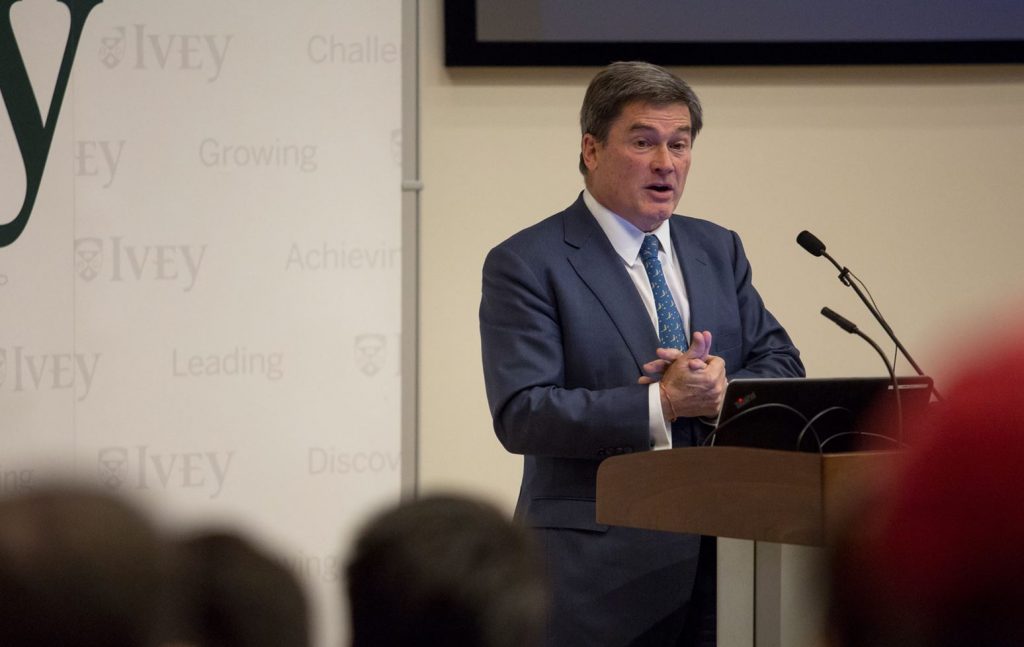
Gardner Russo & Gardner managing member Tom Russo / Photo via ivey.uwo.ca
- The capacity to invest
- The capacity to suffer
- The capacity do nothing
“Despite the long-term unattractiveness of holding cash, doing nothing may sometimes prove to be the right decision to make,” HBA and Computer Science dual degree candidate Leroi Yu writes on the Ivey Business School blog. Sitting on the sidelines instead of compromising on quality takes character. It provides optionality and may prove to be beneficial in the long-run.”
You can read more about Russo’s advice here.
MBA Battle: BU Questrom v. BC Carroll

Boston College and Boston University are two of the metro’s most popular and recognizable schools. But for two schools with a lot in common, BU and BC don’t seem to like each other much. Continue reading…
What are the Highest Paying Finance Companies for MBAs?

Let’s face it: even if money isn’t the number one reason you are looking into an MBA, it’s probably pretty high on the list. We know that earning an MBA can not only lead to a raise in salary, but can open the door to even more career opportunities that can further increase your earning potential. For those with money on the mind, there’s a lot to consider when pursuing your MBA, from which specialization will give you the most ‘bang for your buck’ to what kind of future employers most value their MBAs.
One of the top industries that consistently makes the list when looking for the most valuable MBA specializations is finance. With an average salary of $121,000 USD for jobs within the finance industry, having or working towards your MBA is a reality of the field. But for those who are willing to put in the work, finance companies are willing to pay.
The 5 Best Paying Finance Companies For MBAs
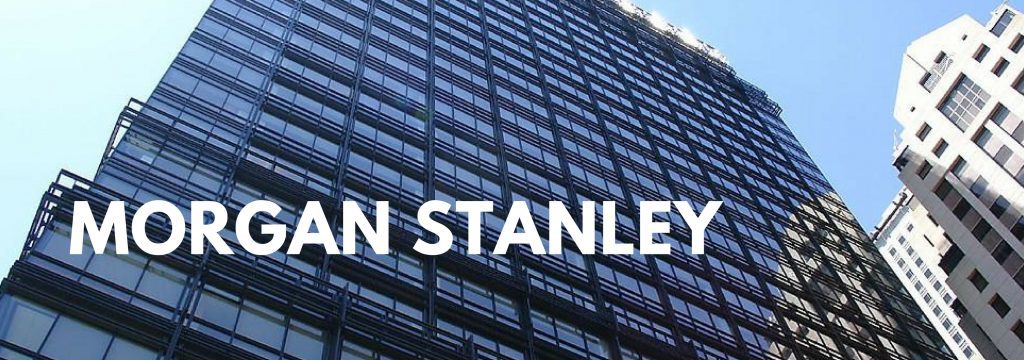
One of the places where MBAs are earning top dollars is Morgan Stanley, a financial services firm that provides a number of financial advising services, such as wealth management, investment banking, sales and trading, research, and more. Morgan Stanley is an active recruiter of diverse business school and MBA graduates, with their most recent cohort of recruits coming from 56 different countries. The company offers graduates a number of different ways to get their foot in the door, including a number of summer internships and fellowships designed specifically for MBAs.
It’s clear that Morgan Stanley believes in investing in the MBAs on its staff. While the average salary at the company is in the $75,866 range for those with just a bachelor’s degree, employees have reported average salaries around $100,477 after earning an MBA.
Depending on the job and department within the company, earning potential can be even higher. Within the firm’s investment banking department, salaries can reach over $200,000. One reason for Morgan Stanley’s high numbers come from their reputation to dole out tremendous bonuses, which—combined with the base salary—makes this company one of the highest paying firms for MBAs in finance.

Godman Sachs Group, Inc., a multinational finance company that focuses in global investment banking, investment management, securities, and a number of financial services. Founded in 1869, the company today has 34,000 employees throughout the world and revenue of more than $42 billion. Goldman Sachs makes a number of opportunities available to recent MBA graduates and current students, such as the Goldman Sachs MBA Fellowship which recognizes outstanding business students with a role as summer associate and $35,000 award in addition to the associate’s salary.
According to Payscale, MBA holders at Goldman Sachs earned a median salary of $96,844. With such a high number of diverse MBAs working for their organization, this average includes the salaries of finance managers, CFOs, financial analysts, financial controllers, and many other positions that MBAs might hold within the company.
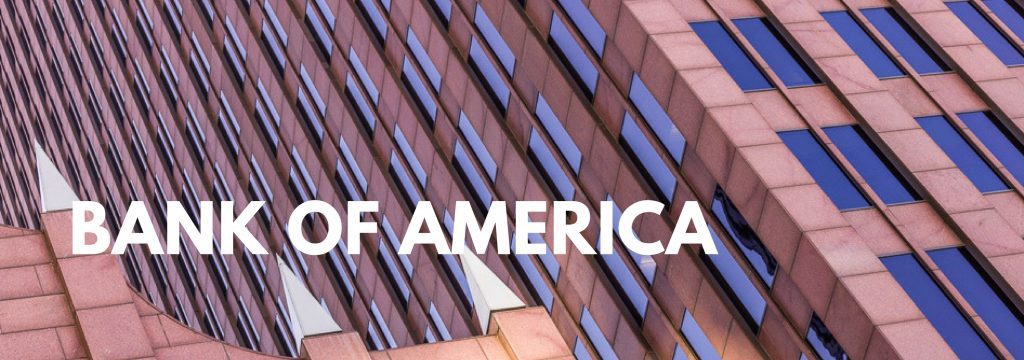
Bank of America began more than a hundred years ago, undergoing a series of expansions and mergers that ultimately led the company to its role as one of the ‘Big Four’ banks of the United States. Today, Bank of America makes more than $87 billion in revenue and employees a whopping 208,000 employees throughout the world. Through campus recruiting, diversity fellowships, and summer internships, Bank of America actively seeks talented MBA students and recent graduates. Through the full time analyst and associate programs, graduates work full-time in a structured program that offers consistent training, development, and social opportunities.
Bank of America employees with MBA degrees report an average salary of $101,522. Programs dedicated to hiring and training MBAs, such as the Bank of America MBA Leadership Development Program, matches these exceptional salaries, offering recent graduates impressive professional development opportunities as well as salaries ranging from $94,918-$101,733.

Headquartered in Zürich, Credit Suisse Group is a multinational financial services holding company with a heavy presence in the United States. With more than 48,000 employees worldwide, Credit Suisse in 2014, was said to hold more than $888 billion of assets under management. Credit Suisse offers several pathways for MBA graduates to become involved at their company, offering positions as full-time analysts, associates, and career starters.
Depending on the role, there can be a wide range of salaries recent graduates might earn when they join Credit Suisse in an analyst positions. Positions like investment banking analyst or business analyst are likely to make upwards of $70,000-80,000, with the opportunity to turn your degree into much more as you move up through the ranks. The average salary for an MBA with a finance specialization, according to Payscale, is $120,414.
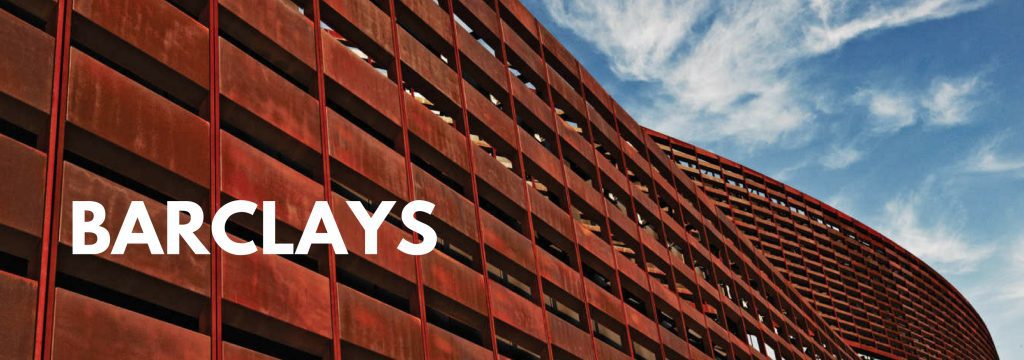
Barclays, a British multinational bank and financial services company, is well-known today for its global reach, employing more than 120,000 people and operating in more than 40 countries. Like the other high-paying financial firms on this list, Barclays offers a number of opportunities to draw talented MBA graduates to their company. Programs like Barclays MBA Ambition gives MBA candidates the chance to get a summer internship at the company even before beginning their program, allowing them to focus fully on school once it starts while feeling confident about the future. This fellowship, for example, offers $45,000 toward first-year tuition with the opportunity for an additional $45,000 in their second year if they choose to join Barclays full-time after graduating. On average, salaries for recent graduates can range from $69,588-$74,898.
Philly’s Fastest MBA Programs

You’re education is important—but so is your time. And for those looking to earn an MBA to accelerate their job growth or fast track their careers, the faster you can earn that degree the faster you can get back to earning money and making an impact in your field.
Most business schools offer a variety of MBA programs for students to choose from, allowing everyone from recent graduates to experienced executives the flexibility to choose a program that best fits into their life and schedule. For driven students who just can’t wait to reap the benefits of their MBA, many schools offer accelerated or One Year MBA programs that shortens the traditional length of time it would take to earn an MBA. While the curriculum can be rigorous, the programs give students the chance to quickly earn their degree, both minimizing the amount of money spent on classes and the income lost from not working full time.
In Philadelphia, there are a number of programs that allow you to go from applicant to degree holder in as little as twelve months. And since a 2017 study ranked Philadelphia as one of the five most-improved economic cities in the U.S., you won’t want to miss your chance to reap the benefits of this economic boom with your degree in hand.
The Fastest Philadelphia MBA Programs
Fox School of Business – Temple University
The Temple University Fox School of Business Executive MBA is one of Philadelphia’s quickest and most flexible MBA degrees. The program takes place over the course of 16 months, with classes delivered on one three-day weekend per month. The program is designed for experienced professionals who want to pursue their degree without giving up their career, and is constructed to accommodate a full-time work schedule.
For those looking for a quick MBA without the ten or more years of work experience an EMBA requires, Temple Fox’s Online MBA can be earned in just 20 months. Outside of one week-long residency at the start of the program, the digital aspect of this degree gives students not just time flexibility but also location. After the residency, this program can be pursued from pretty much anywhere!
LaSalle University School of Business
The School of Business at LaSalle University offers a One-Year MBA program for students with undergraduate experience in business. Knowing that important business pre-requisites for the degree are already out of the way, students can jump right in and earn their MBA in as little as 12 months.
The AACSB accredited One-Year program is an intensive degree program that requires students to take a full course load for the fall and spring semester as well as working through a winter intersession and summer semester. Students in this program also have the opportunity to specialize their degrees in the fields of accounting or finance, and will help prepare graduates to take the CPA and CFA exams by the end of the year. Students will also be paired with an academic adviser throughout the year who will help plan for their future careers. And the success of past graduates of the One-Year MBA program seems pretty clear, joining major companies like Deloitte LP, KPMG, PwC, and JP Morgan Chase, among others.
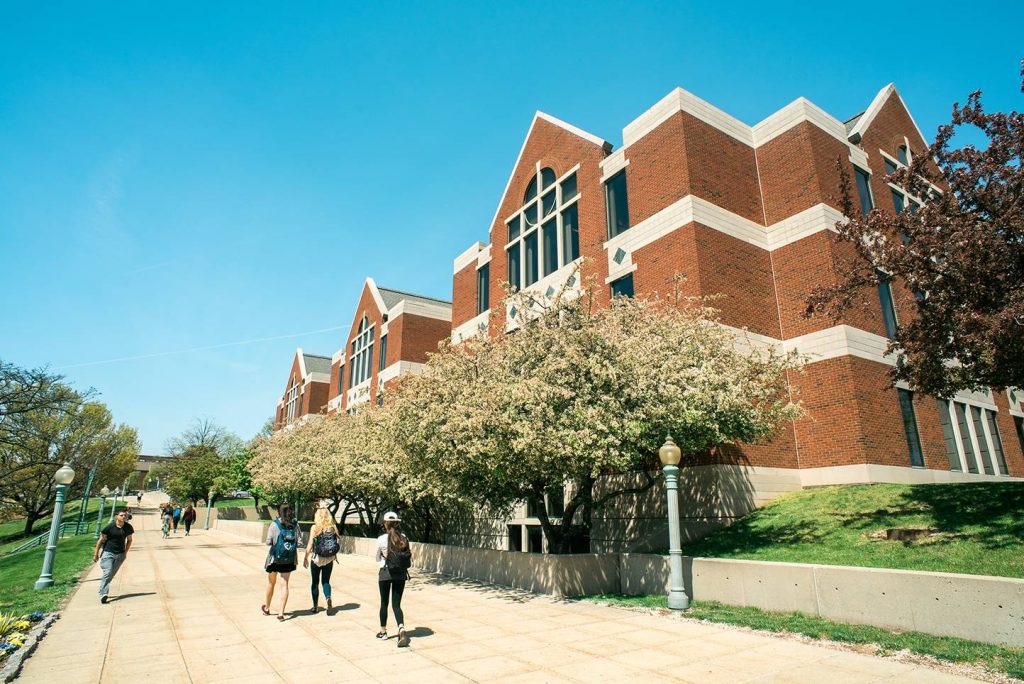
The La Salle One-Year MBA is among the fastest MBAs you can earn in any major East Coast city.
Haub School of Business – Saint Joseph’s University
The MBA at Saint Joseph University’s Haub School of Business can be completed in as little as one year for students who meet certain undergraduate requirements. Students can pursue this degree in a variety of ways, whether on campus or online, and whether full or part-time. Regardless of format, the MBA at Haub gives students the option to choose major for their degree, among high-demand disciplines like marketing, data intelligence, finance, international business and more.
The overall data which shows that those with an MBA earn more and have more career opportunities most certainly rings true for graduates of Haub’s MBA program. Nearly 76 percent of graduates said their SJU MBA helped their career advance, and 73 percent reported a salary increase as a result of their graduation. With the chance to limit the time of an SJU MBA to just 12 months, students can work their way to these benefits even faster.
Lehigh University College of Business and Economics
The 1-MBA at the Lehigh University College of Business and Economics is a full-time, one year MBA program designed for professionals looking to either accelerate their career or looking to change careers and move towards a business-related field. The rigorous program, which is located all on campus, cuts the time it takes to pursue a traditional Lehigh MBA in half.
Unique benefits of the 1-MBA at Lehigh include a team of mentors and coaches assigned to students even before they arrive on campus, including a faculty adviser, industry mentor and career coach who will help guide students through their year-long program. The program is also centered around a consulting practicum, which both trains students in practical skills for consulting and provides hands-on experience in the field. The 1-MBA program also focuses intensely on the professional development of every student in the program, offering personalized coaching and global immersion study opportunities that can help shape and prepare students for future business success.
